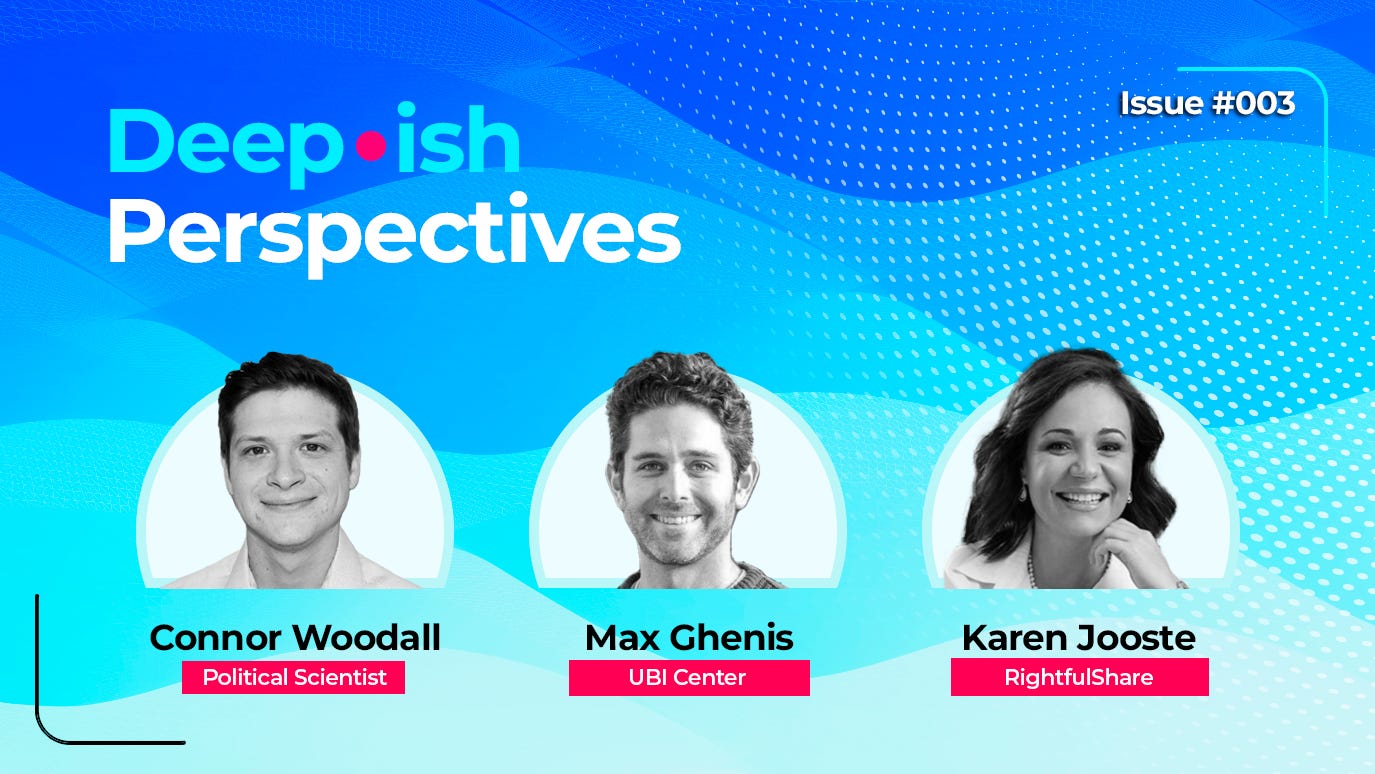What Would It Take to Make Universal Basic Income Work at Scale?
Deep-ish Perspectives Issue #3
What would it take to make Universal Basic Income work at scale?
We ask three UBI experts…
Connor Woodall, Political Scientist
A few core components are necessary to make a UBI happen anywhere.
First, is political support behind the idea which will require well-thought-out narratives, sustainable financing plans, and plans for implementation that are pursuable for politicians.
Second, there will need to be a clear understanding by the public of how this will be funded as well as how they will be affected financially and socially. Sadly, this is difficult for people to imagine without firsthand experience. Although, utilizing storytelling from the UBI trials that have already existed could be beneficial in promoting the potential benefits of UBI to the public.
Last, is public support and faith in UBI. Like any form of economics, people need to legitimize the system that we are creating and stand behind it in support, otherwise, it could crumble and we could see more negative impacts than positive ones from implementation.
Max Ghenis, Co-Founder & CEO @ UBI Center & Policy Engine
Givedirectly is running a UBI experiment in Kenya, and some crypto projects like Worldcoin intend to distribute themselves as a UBI, but I don't think it's realistic to run a full UBI outside of government. Only taxation can generate the requisite resources.
Karen Jooste, Founder at RightfulShare
To make basic income a reality, we need to link it to the experiences of everyday people, in particular, the middle class, who can affect political change. In this regard, the 'framing' of basic income becomes incredibly important.
Basic income is about much more than poverty alleviation. The point of a basic income is to change the way money is distributed in a society. To create a fair economy that gives everyone the confidence and ability to innovate and be entrepreneurial.
Therefore, the words we use are incredibly important in building a larger movement that can establish basic income as a legitimate political issue.



